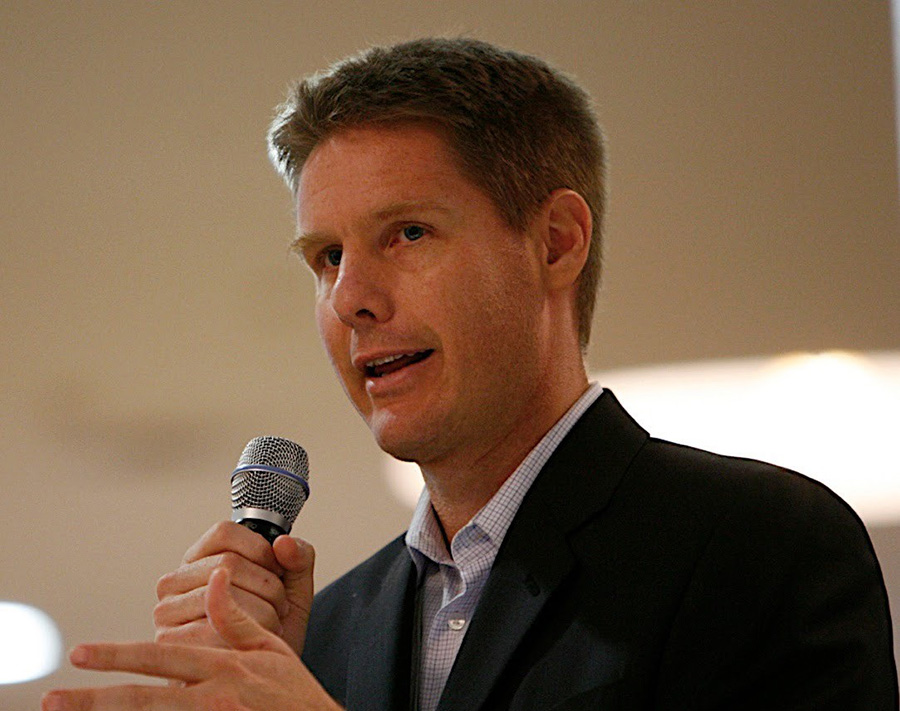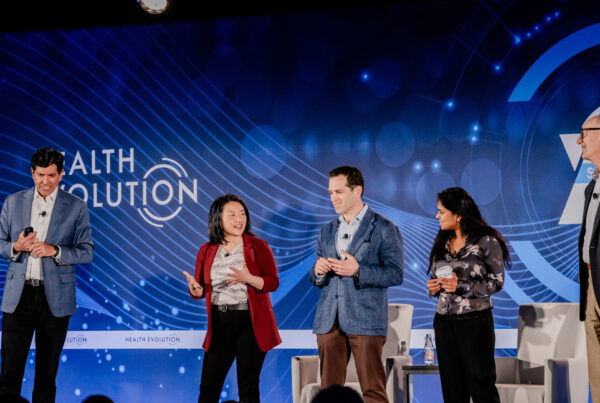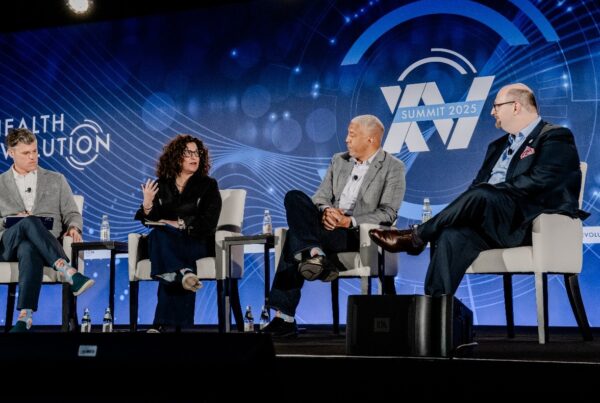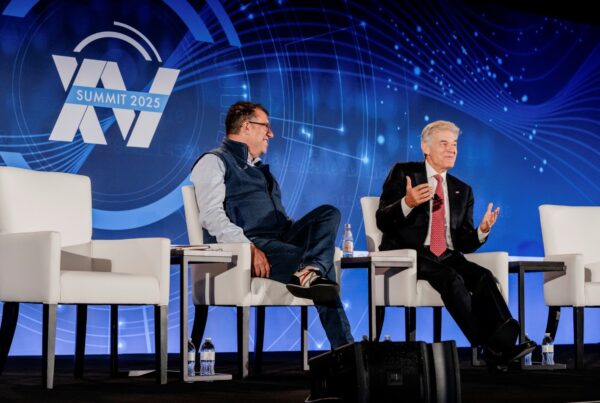At the Health Evolution Summit in April, the Commons Project will hold its first CommonHealth trustees and partners meeting, bring a new Android-based app that will be available for public download to enable patients to access health data and discuss the big picture utility-like data sharing service it envisions.
CEO Paul Meyer describes CommonHealth as an open-source, non-profit public service that the Commons Project is building with a broad coalition of public and private partners across the health and technology ecosystems. The goal? Building public infrastructure for the digital era with longevity in mind. Think: 100 years, or the lifecycle of at least a generation of human beings.
One such institution Meyer modeled the Commons Project on is the Port Authority of NY&NJ, formed in 1921 to build bridges and tunnels. Meyer contends that if the Port Authority operated on venture financing it would have had to sell the bridges within five years to appease investors. “Some services ought to be operated as public services and as a society we haven’t found a model to create and operate digital services for public good,” Meyer says. “You need a different operational structure for services intended first and foremost for the public good — a traditional model just doesn’t work.”
Health care’s historical model is holding onto data
Health Evolution Chairman David Brailer, MD, is among the Common Project’s trustees and was also a co-founder of the CARIN Alliance which, along with Carequality, CommonWell Health Alliance, and Direct Trust, are each working in their own way to increase information interoperability.
“Health care has a model of holding on to data and trying to lock it down,” Meyer says. “That model is becoming a thing of the past and there’s a recognition that people have a legal right to their data for themselves and their own lives. The fact that we don’t have the ability to collect and manage our data is insane.”
Meyer says that the Commons Project is starting with a free app, called CommonHealth, that will equip Android smartphone users with the ability to access and share information via their phones much the way Apple Health Records enables users to view their health data from multiple institutions and electronic health records vendors.
See also: The Health Evolution CEO Guide to Artificial Intelligence in Health Care
But the Commons Project does not view CommonHealth as a competitor to Apple; instead, the initiative aims to level the playing field for Android users and software developers to get into clinical practice, research and third-party apps.
“It’s called CommonHealth not Android health,” Meyer says. “Apple has been a powerful tool to enable individuals to aggregate and pull down data from EHRs, but if you’re a researcher or clinician you can’t just implement a platform that only works for Apple or Android.”
One of the early test sites, in fact, is already using both Apple Health Records and CommonHealth.
UCSF piloting CommonHealth
Ida Sim, MD, is leading a pilot of the CommonHealth app at the University of California San Francisco, where she is a professor of medicine. Sim is also a Commons Project trustee.
“UCSF is looking for the combination of Apple Health Records and CommonHealth as a path for patients to get at their EHRs, and for clinical care or research solutions either built or deployed by UCSF to have a uniform path for getting EHR data,” Sim says.
Sim adds that another reason to establish a utility type of service is the ability to consolidate consent management. The service provides patients with a single point of contact for knowing and verifying what data they share and with whom. And it will allow them to revoke that right.
The CommonHealth app is just the first step in the Commons Project’s long-term vision.
“This is a starting point with the app, it’s a toe in the water to get people comfortable with the model of connected care delivery,” says Alan Warren, a Commons Project trustee, formerly CTO of Oscar Health and a VP at Google who ran engineering for Google Health from 2007-2009. “The app will open doors for discussion and potential partners.”
When it’s ready for public download, the CommonHealth app will also be available to the approximately 600 health systems that support Apple Health, and Meyer says it will be in full operational production for large scale partners in the second quarter of 2020.
In addition to USCF, hospitals, digital health and pharma companies are testing the technology. Meyer says the Commons Project will announce its network of founding partners at the Health Evolution Summit as well.
The bigger vision: A ‘public trust’ for data sharing
Meyer’s aspiration for the Commons Project is to serve as the public trust infrastructures for digital services and provide a utility-like service with a governance model purpose-built to ensure that it remains neutral and not influenced by commercial interests.
“You don’t want this run by the government, and you don’t want it to be a commercial entity either,” Warren adds. “Consumer and businesses would be antsy about having just one party in control, whether it’s Google, Apple, Microsoft or whomever, and all the other companies will be cautionary about their users going to a commercial entity for health data.”
[See also: CEOs talk top priorities for next 3-5 years.]
In addition to Brailer, Sim and Warren, some of the trustees include: BCBS Nebraska CEO emeritus Steve Martin, Merck Chief Patient Officer and former CDC Director Julie Gerberding, MD, CareJourney President and the former US CTO Aneesh Chopra, Mayo Clinic CEO Emeritus Denis Cortese, Way to Wellville Executive Founder Esther Dyson, HHS Health IT Advisory Committee co-chair Robert Wah, MD, Rockefeller Foundation President Rajiv Shah, MD, former HHS Chief Data Officer Mona Sidiqqui, MD, and a pair of previous HHS CTOs: Kaiser Permanente Ventures Managing Director Bryan Sivak and LHC Group EVP Bruce Greenstein.
Meyer says that the non-profit structure and governance model is designed to make it comfortable for all the stakeholders in the ecosystem to embrace the organization as a neutral shared service not influenced or favoring one category, stakeholder or revenue model.
“Common Health recognizes that the missing ingredient in health information sharing is public trust,” Brailer adds. “That trust has to be built from the ground up.”
The public trust model is also designed to support third-party apps such that if Google were to take a page out of Apple’s playbook and build similar capabilities into a future smartphone operating system, it would continue for the same matter of trust: Patient data should not be controlled by a commercial entity.
“Ultimately, competition and choice are good for consumers,” Meyer says. “We also believe that a neutral public option to protect personal health data should exist, and will remain the platform of choice for many people and many partners across the health ecosystem.”
Why the timing is (finally) right
Unlike previous efforts at enabling people to access and share their health data, including Google Health and Microsoft HealthVault, Warren says the time, policy and market conditions are right for CommonHealth to succeed.
Warren continues that one of the highest hurdles for Google Health was that it existed prior to the federal government putting in place data sharing requirements. Today’s environment, however, is poised to essentially force standardization and APIs — which sets the stage for more people to access, control and share their data.
“The legislation is providing good tailwind and the Commons Project’s neutral Switzerland positioning in between government and public machinery and the commercial side of the house positions it for better outcomes,” Warren adds.
But is the idea of a nonprofit utility for health data sharing just a dream? Is it even feasible on a national scale?
UCSF’s Sim is bullish.
“This approach is realistic and not at all grandiose,” Sim says. “It places patients in the appropriate central role with both technical and policy support to ensure safe and fair data use.”
UCSF plans to move beyond pilot testing and into production in either the second or third quarter of this year, Sim adds.
The Health Evolution Summit is scheduled for April 1-3, 2020 at the Ritz-Carlton Laguna Niguel, California. View the agenda and apply to attend.
Related articles:
AI is here and it’s time to change: CEOs must adapt for the new age
Health Evolution Impact Circle 2020 to focus on price transparency, consumerism, election year policy, and more
What we have planned at the Health Evolution Confab of Women ChangeMakers 2020
What to expect at the Health Evolution Executive Briefing: Artificial Intelligence & Machine Learning 2020











